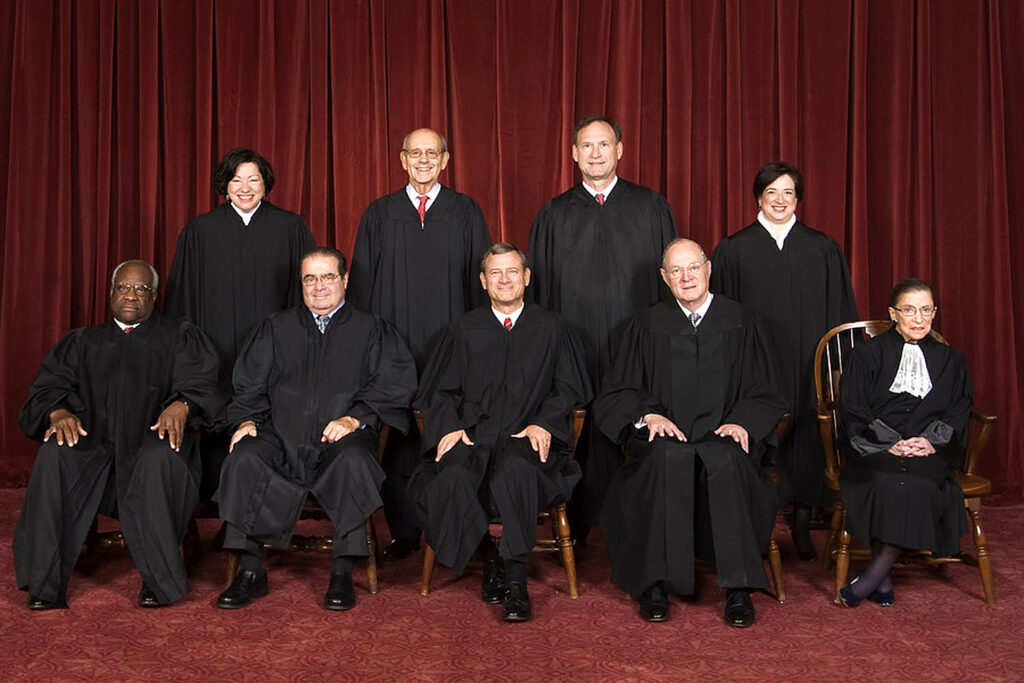In recent legal news, a federal judge has dismissed Blakeman’s lawsuit against the state, a significant development in the ongoing legal proceedings. This decision marks a pivotal moment in the case and has substantial implications for both the plaintiff and the state. This article will delve into the details of the dismissal, the background of the lawsuit, and the potential next steps for Blakeman and the state.
Background of Blakeman’s Lawsuit
The Origin of the Lawsuit
Blakeman’s lawsuit against the state emerged from a dispute involving [specific issue or context of the lawsuit]. Blakeman, who had initially sought legal redress through the courts, alleged [specific claims made in the lawsuit]. The case gained considerable attention due to its implications for [relevant field or issue], and many were closely following the proceedings.
Key Claims in the Lawsuit
In the lawsuit, Blakeman made several key claims against the state. These included [briefly summarize the claims made by Blakeman]. The central argument was that the state had [describe the alleged wrongdoing or issue]. The lawsuit sought [specific relief or compensation sought].
The Dismissal of the Lawsuit
Reasons for Dismissal
A federal judge has now dismissed Blakeman’s lawsuit against the state, citing [reasons given by the judge for dismissal]. The judge’s decision was based on [legal grounds for dismissal, such as lack of evidence, procedural issues, or legal principles]. This ruling signifies that, according to the court, Blakeman’s claims did not meet the required legal standards.
Legal Implications
The dismissal of Blakeman’s lawsuit has several legal implications. For one, it underscores [specific legal principle or precedent]. Additionally, the ruling might influence future cases with similar claims or legal contexts. The decision could also affect how similar disputes are approached and adjudicated in the future.

Reactions to the Dismissal
Blakeman’s Response
Following the dismissal, Blakeman has expressed [response or reaction to the dismissal]. Blakeman’s legal team might be considering [possible next steps or responses, such as an appeal]. The dismissal could impact Blakeman’s future legal strategy and decisions.
State’s Reaction
The state has reacted to the dismissal by [state’s response]. The ruling may serve as a validation of the state’s position or policies related to the case. The state might use this decision to reinforce its stance on [relevant issue or policy].
Next Steps and Future Implications
Potential Appeal
Blakeman’s team may decide to appeal the dismissal, which would involve [describe the appeal process briefly]. An appeal could lead to a higher court reviewing the case and possibly overturning or modifying the dismissal. The outcome of an appeal could have further implications for both Blakeman and the state.
Broader Impact
The dismissal of Blakeman’s lawsuit against the state could have broader impacts beyond the immediate case. It might set a precedent for similar lawsuits, influencing how courts handle such cases in the future. Additionally, the case’s outcome could affect public perception of [related issue or policy].
Conclusion
The federal judge’s dismissal of Blakeman’s lawsuit against the state is a significant legal development with far-reaching consequences. This decision reflects the court’s evaluation of the case’s merits and legal standards. As Blakeman and the state consider their next moves, the impact of this ruling will likely resonate through ongoing legal discussions and future cases.
Understanding the details and implications of this dismissal is crucial for grasping the broader context of the dispute. Whether or not Blakeman chooses to appeal, the case has already made a notable mark on the legal landscape.


![# Robert C. O'Brien News: Latest Updates and Insights Robert C. O'Brien, a prominent figure in American politics and diplomacy, has been the subject of significant news coverage recently. Known for his role as the former National Security Advisor, his activities and statements continue to capture public and media attention. In this article, we will delve into the latest Robert C. O'Brien news, providing a comprehensive overview of his recent endeavors, key developments, and their implications. ## Recent Robert C. O'Brien News Highlights ### New Roles and Appointments One of the most significant updates in the Robert C. O'Brien news is his recent appointment to [specific new role or position]. This new role highlights O'Brien's continued influence in political and diplomatic circles. The appointment marks a new chapter in his career and reflects his ongoing impact on national and international affairs. ### Statements and Public Appearances Robert C. O'Brien has recently made headlines with his statements on [specific issue or topic]. His comments on [related policy or international relations topic] have sparked discussions and debates among policymakers and the public. O'Brien's perspectives are closely followed due to his extensive experience in national security and foreign policy. ## Key Issues and Topics in the Robert C. O'Brien News ### National Security and Foreign Policy As a former National Security Advisor, Robert C. O'Brien's insights into national security and foreign policy are highly valued. Recent news coverage has focused on his views regarding [specific national security issue or international conflict]. O'Brien's expertise in these areas continues to shape discussions on how the United States should approach various global challenges. ### Business Ventures and Consulting In addition to his role in public service, Robert C. O'Brien has been involved in several business ventures and consulting activities. Recent Robert C. O'Brien news includes his work with [specific company or organization]. These ventures often intersect with his public service experience, providing a unique perspective on business and diplomacy. ### Commentary on Current Events Robert C. O'Brien frequently offers commentary on current events, providing expert analysis on issues such as [specific current event or crisis]. His opinions are sought after by media outlets and policymakers, reflecting his continued influence in shaping public discourse on significant issues. ## Implications of Recent Robert C. O'Brien News ### Impact on National Policy The recent updates in Robert C. O'Brien news could have a substantial impact on national policy. His new roles and statements may influence ongoing debates and decisions related to [specific policy area]. As a seasoned expert, O'Brien's perspectives are likely to be considered in shaping future policy directions. ### Influence on International Relations Robert C. O'Brien's involvement in international affairs continues to affect U.S. foreign relations. His comments and activities in the realm of diplomacy are closely monitored by other countries and international organizations. The news surrounding his role and statements could have ripple effects on global diplomatic relations. ### Public Perception and Media Coverage The way Robert C. O'Brien is portrayed in the news can affect public perception of his roles and contributions. Media coverage often highlights his expertise and positions on key issues, influencing how the public views his impact on national and international matters. Understanding these narratives is crucial for grasping the broader context of his activities. ## Future Developments to Watch ### Potential Policy Changes As Robert C. O'Brien continues to be active in public and private sectors, potential policy changes related to his work are worth watching. Future developments may include [specific policy proposals or changes]. Keeping an eye on these developments will provide insight into how O'Brien's influence might shape future national and international policies. ### Upcoming Public Appearances Robert C. O'Brien's upcoming public appearances and speeches are also anticipated with interest. These events often provide further insight into his views and priorities. Following these appearances can offer a deeper understanding of his current focus and future directions. ### New Projects and Initiatives In addition to his current roles, O'Brien may be involved in new projects and initiatives that could impact various sectors. Staying informed about these new ventures will help track his evolving contributions and influence. ## Conclusion The latest Robert C. O'Brien news highlights his ongoing role as a significant figure in American politics and diplomacy. From his new appointments to his commentary on current events, O'Brien continues to make headlines and shape discussions on crucial issues. By staying updated on the latest news, one can better understand the implications of his work and contributions. Whether through his public statements, new roles, or involvement in business ventures, Robert C. O'Brien remains a key player in shaping national and international affairs. Following the latest developments in his career provides valuable insights into how his influence continues to evolve and impact the broader political landscape.](https://scareplay.com/wp-content/uploads/2024/08/robrien-scaled-2-150x150.jpg)